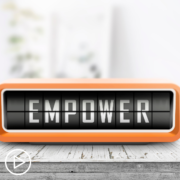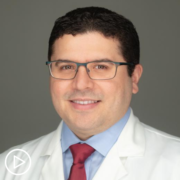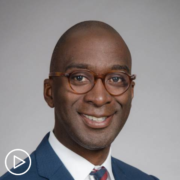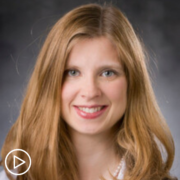Dr. Danielle Brander: Why Is It Important for You to Empower Patients?
Dr. Danielle Brander: Why Is It Important for You to Empower Patients? from Patient Empowerment Network on Vimeo.
How can cancer experts help empower patients? Expert Dr. Danielle Brander from Duke Cancer Institute shares her approach to patient care through diagnosis and treatment and explains how patient empowerment helps in creating optimal care.
See More from Empowering Providers to Empower Patients (EPEP)
Related Resources:

|

|

Dr. Yaw Nyame: Why Is It Important for You to Empower Patients? |
Transcript:
Dr. Danielle Brander:
My hope or my goal from my first meeting together, and that could be around the time of their diagnosis. Sometimes we’re meeting because patients are referred to talk about treatment. Sometimes patients have had a few treatments, of course, if they’re being referred for a clinical trial or a novel course of therapy. And my hope from the very beginning is creating an environment or creating a conversation and relationship where first and foremost patients feel free and not hesitant to ask their questions. Because if there’s misunderstanding or a lack of understanding or patients don’t know what to look out for, then it’s really hard to really to help them, whether that’s treatment or empowering them on other aspects of their health. And sometimes those questions come up with the visits, sometimes they come up after.
I encourage them to bring them back for their follow-up visits. It’s okay to ask the same questions because they’re going to be at different paths and points in their CLL journey along the way. It’s important for them to be empowered because again, that helps us in tailoring their treatment. It helps us at understanding what they want, what their goals are in choosing a treatment or choosing a trial path.
And again, only the patient and their family or caregivers truly know what is best for them and for us to meet them where they are. But the other empowering things I tell patients is that, you know, when they ask their questions or when they bring forth their experience, it improves our understanding to help them. But it’s really through those conversations that we learn so much to help all our patients, to be quite honest. We hope through trials that gives us information, but we know trials can’t capture all of this. It’s these individual relationships. And so I tell patients that them sharing their experience really does help us tailor things for them. But really, I think, enriches the experience and the way that we can help everyone.




